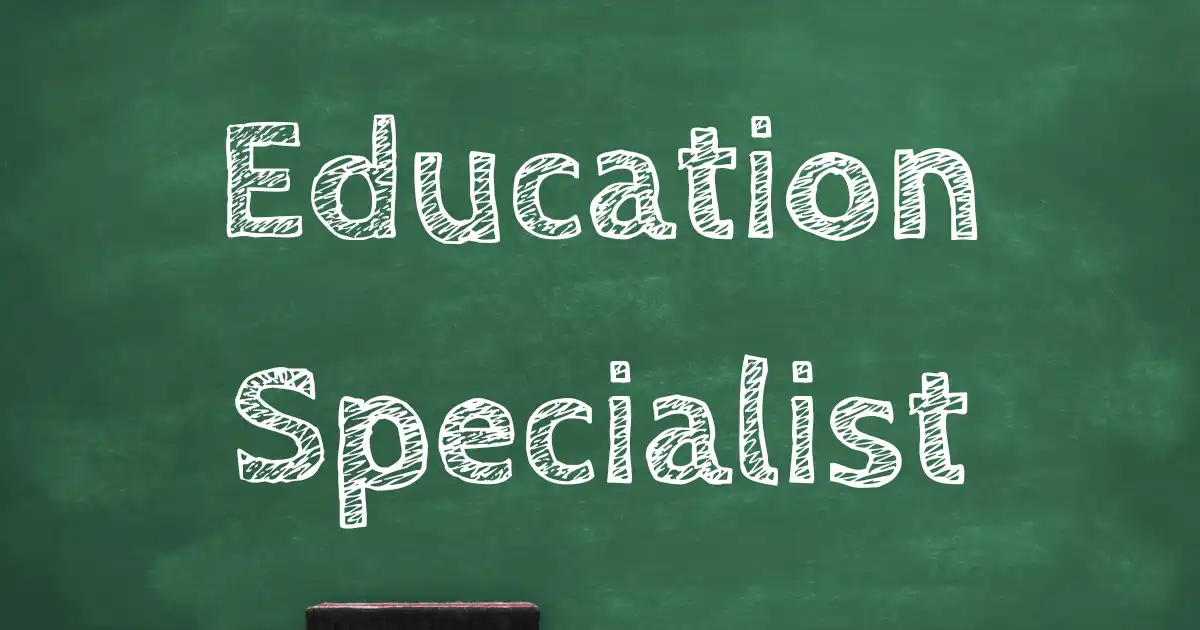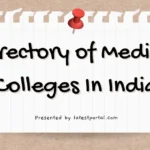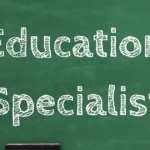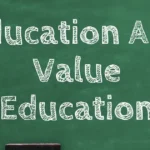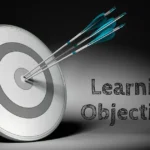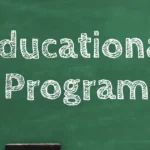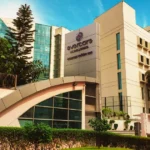To become an Education Specialist in South Africa, earn a relevant degree and gain experience in the education sector. An Education Specialist in South Africa plays a pivotal role in shaping educational policies and curriculum development.
They work to improve teaching methods and student outcomes. Pursuing this career requires a strong foundation in education through a Bachelor’s or Master’s degree in education or a related field. Practical experience in teaching or educational administration is also crucial.
Professional certifications can further enhance your qualifications. This career path offers opportunities to influence educational practices and make a significant impact on the education system. It requires dedication, continuous learning, and a passion for education. Follow these steps to contribute effectively to South Africa’s educational landscape.

Credit: www.nu.edu
Educational Requirements
Becoming an Education Specialist in South Africa requires specific educational milestones. These include obtaining degrees and certifications. This ensures you have the knowledge and skills for the role.
Necessary Degrees
- First, you need a strong educational foundation. You must have a Bachelor’s Degree in Education. This degree covers essential teaching methods and child psychology.
- Next, consider advancing your education. A Master’s Degree in Education is highly recommended. This degree helps you specialize in areas such as curriculum development and educational leadership.
- Some professionals pursue a Doctorate in Education. This is ideal for those who want to contribute to educational research or take on high-level administrative roles.
Relevant Certifications
Certifications are crucial for an Education Specialist. One important certification is the South African Council for Educators (SACE) Registration. This certifies you as a qualified educator in South Africa.
Another valuable certification is in Special Needs Education. This qualification allows you to work with learners who have special educational needs. Consider obtaining a certification in Educational Technology. This is increasingly important as digital tools become integral to learning environments.
Skills And Competencies
To become an Education Specialist in South Africa, you need specific skills and competencies. These skills will help you excel in your role and make a significant impact on the education system. Here’s a detailed look at the essential skills and additional competencies required.
Essential Skills
Education specialists need a set of core skills to succeed. Below are the most important ones:
- Teaching Experience: Hands-on experience in teaching is crucial.
- Curriculum Development: Ability to design and implement effective curricula.
- Assessment Skills: Proficiency in evaluating student performance.
- Communication: Clear and effective communication with students and staff.
- Research Skills: Capability to conduct educational research and apply findings.
Additional Competencies
Besides essential skills, additional competencies will help you stand out:
- Leadership: Lead teams and projects with confidence.
- Technology Integration: Use educational technology to enhance learning.
- Problem-Solving: Address and solve educational challenges creatively.
- Adaptability: Adjust to new educational trends and policies.
- Collaboration: Work well with colleagues, parents, and the community.
| Skill | Description |
|---|---|
| Teaching Experience | Practical teaching in a classroom setting. |
| Curriculum Development | Designing learning programs and materials. |
| Assessment Skills | Evaluating and measuring student progress. |
| Communication | Clear, effective interaction with stakeholders. |
| Research Skills | Conducting educational studies and applying results. |
| Leadership | Guiding teams and educational initiatives. |
| Technology Integration | Using digital tools to support teaching. |
| Problem-Solving | Finding solutions to educational issues. |
| Adaptability | Responding to changes in the education sector. |
| Collaboration | Working effectively with others. |
Gaining Experience
To become an education specialist in South Africa, gaining relevant experience is crucial. You need hands-on experience to build your skills and knowledge. Here are some effective ways to gain that experience.
Internships And Volunteering
Internships provide practical experience in educational settings. Many schools and educational institutions offer internships. These opportunities help you understand daily operations and challenges in education.
Volunteering is another excellent way to gain experience. Volunteer at local schools or educational NGOs. This helps you develop a network and learn new skills. Here are some benefits of internships and volunteering:
- Build practical skills
- Expand your professional network
- Enhance your resume
Entry-level Positions
Entry-level positions are essential for gaining experience. Look for roles like teaching assistant, tutor, or administrative support in schools. These positions help you understand the education system better. Here are some entry-level positions to consider:
| Position | Description |
|---|---|
| Teaching Assistant | Assist teachers with classroom activities. |
| Tutor | Provide one-on-one support to students. |
| Administrative Support | Help with school administration tasks. |
Working in these roles helps you gain valuable insights and build a solid foundation for your future career.

Credit: www.amazon.com
Certification And Licensing
Becoming an Education Specialist in South Africa involves several steps.
Certification and Licensing are crucial parts of this journey.
These ensure you meet the standards and regulations set by the country.
South African Qualifications Authority
The South African Qualifications Authority (SAQA) plays a key role in education.
It sets the required qualifications for various professions.
For an Education Specialist, you need a recognized qualification.
To get your qualifications recognized, submit your documents to SAQA. They will assess and validate your credentials. SAQA ensures your qualifications meet South African standards.
You can visit the SAQA website for more details on the process. They provide guides and resources to help you. Always ensure your documents are up-to-date.
Teaching Licenses
A Teaching License is essential for Education Specialists. The South African Council for Educators (SACE) issues these licenses. You must register with SACE to get your license. To register, you need to provide:
- A recognized teaching qualification
- Proof of identity
- Criminal clearance certificate
SACE conducts regular checks to ensure educators remain competent. They offer professional development programs. These programs help you stay updated with the latest teaching methods.
Keeping your Teaching License valid is important.
Ensure you renew it as required.
Stay informed about any changes in regulations.
Job Market Insights
South Africa’s education sector is evolving. Opportunities for education specialists are growing. Understanding the job market is key to success in this field.
Current Trends
The demand for education specialists in South Africa is rising. Digital learning is a significant trend. Schools and universities are integrating technology into classrooms. This shift creates more opportunities for specialists with tech skills.
Another trend is the focus on inclusive education. Schools aim to cater to students with diverse needs. Specialists who understand inclusive education are in high demand.
There is also a push for continuous professional development. Teachers and educators seek to improve their skills. Education specialists who offer training and workshops are sought after.
Potential Employers
Many organizations hire education specialists in South Africa. These include:
- Public Schools: Government schools need specialists to improve teaching methods.
- Private Schools: Private institutions seek experts to enhance their curriculum.
- Universities: Higher education institutions require specialists for research and development.
- NGOs: Non-governmental organizations work on educational projects and need skilled specialists.
- EdTech Companies: Companies that develop educational technology hire specialists to create and implement learning tools.
Below is a table highlighting some top employers:
| Employer Type | Example Organizations |
|---|---|
| Public Schools | Department of Basic Education |
| Private Schools | Curro Holdings |
| Universities | University of Cape Town |
| NGOs | Teach South Africa |
| EdTech Companies | Snapplify |
Networking And Professional Development
Networking and professional development are crucial steps to becoming an education specialist in South Africa. Building a strong network and constantly improving your skills can open doors to new opportunities and career advancements. Learn how to grow your professional connections and keep your skills up to date.
Joining Professional Associations
Joining professional associations can significantly enhance your career. These associations offer numerous benefits:
- Networking opportunities: Meet industry leaders and peers.
- Professional recognition: Gain credibility in your field.
- Access to resources: Receive exclusive publications and tools.
Some notable associations for education specialists in South Africa include:
| Association | Benefits |
|---|---|
| South African Council for Educators (SACE) | Professional development programs, ethical guidelines, and certification. |
| Education Association of South Africa (EASA) | Research opportunities, conferences, and academic publications. |
| South African Teachers’ Union (SAOU) | Legal support, workshops, and networking events. |
Continued Education
Continued education is vital for staying current in the field. Explore various methods to keep your knowledge updated:
- Online Courses: Platforms like Coursera and Udemy offer specialized courses.
- Workshops and Seminars: Attend events hosted by educational institutions.
- Advanced Degrees: Consider pursuing a Master’s or Ph.D. in Education.
Several South African universities offer advanced degrees and certifications:
- University of Pretoria
- University of Cape Town
- University of the Witwatersrand
By continuously improving your skills and knowledge, you stay ahead in your career. This commitment to learning positions you as a leader in the education sector.
Challenges And Opportunities
Becoming an Education Specialist in South Africa is a rewarding journey. It comes with its own set of challenges and opportunities. Understanding these can help you navigate your career path better.
Common Challenges
Many face financial constraints during their studies. Pursuing higher education can be expensive.
- High tuition fees
- Cost of study materials
- Living expenses
Access to quality education is another challenge. Not all institutions offer the same level of teaching and resources.
- Limited access to quality institutions
- Resource disparities between urban and rural areas
The education sector itself faces challenges. These include outdated curricula and lack of continuous professional development.
- Outdated teaching methods
- Lack of modern resources
- Insufficient professional development programs
Future Opportunities
Despite challenges, there are many opportunities in this field. Education reforms are creating new roles for specialists.
- Curriculum development
- Teacher training programs
- Educational technology integration
There is a growing demand for skilled professionals. Schools and educational institutions are always looking for experts.
- Higher employment rates in education
- Opportunities in both private and public sectors
Continuous learning and development can lead to promotions and better positions.
- Attending workshops and conferences
- Enrolling in advanced degree programs
Below is a table summarizing the key challenges and opportunities:
| Challenges | Opportunities |
|---|---|
| Financial constraints | Education reforms |
| Access to quality education | Growing demand for specialists |
| Outdated curricula | Continuous learning leads to promotions |
Frequently Asked Questions
How Much Do Education Specialists Make In South Africa?
Education specialists in South Africa typically earn between ZAR 200,000 and ZAR 500,000 annually. Salaries vary by experience and location.
Can You Get An Eds Without A Master’s Degree?
No, you typically need a master’s degree to pursue an EdS. Each program has specific requirements. Check individual program details.
What Is The Difference Between A Teacher And An Education Specialist?
A teacher delivers classroom instruction and manages student learning. An education specialist develops curricula, implements educational programs, and trains educators.
Is An Education Specialist Degree Worth It?
An Education Specialist degree can be worth it. It enhances career prospects, boosts salary potential, and deepens expertise. This advanced degree opens doors to leadership roles in education. Consider personal goals and industry demand before deciding.
Conclusion
Becoming an education specialist in South Africa requires dedication and the right qualifications. Follow the steps outlined to achieve your goal. This rewarding career path offers numerous opportunities to make a significant impact. Start your journey today and contribute to the future of education in South Africa.
- India All State Medical Colleges List 2024
- Top 20 Ranking MEdical Colleges in India 2024
- What is the Main Idea of Importance of Education: Unlocking Future Success
- How Do You Know If Learning Has Taken Place: Key Indicators
- How to Become an Education Specialist in South Africa: Expert Guide
- What is the Difference between Education And Value Education: Explained
- How Much Does Education Improve Intelligence: Meta-Analysis Findings
- How Do You Know If Learning Objectives were Released: Key Indicators
- How to Measure the Effectiveness of an Educational Program: Proven Methods
- Can Education IRA Be Used for Room And Board?: Uncover the Facts
- What Do You Think the Purpose of Education is: Unlocking Potential
- When is the Best Time to Get an Education Quizlet: Top Tips
